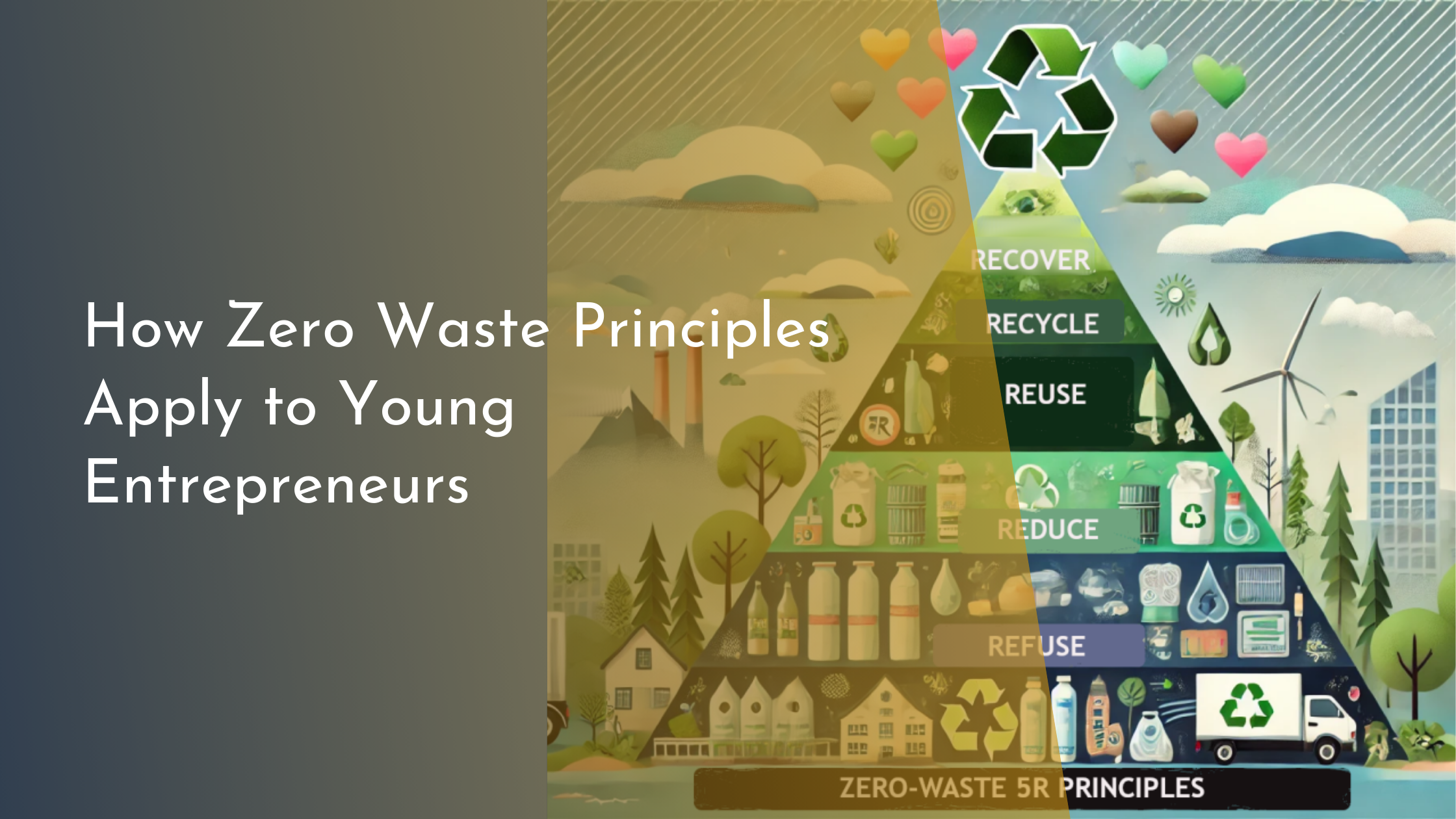How Zero Waste Principles Apply to Young Entrepreneurs
Zero waste is not just an environmental buzzword anymore; it’s a transformative approach that is reshaping how businesses operate, especially among young entrepreneurs. As the world trends toward sustainability, incorporating zero waste principles can offer innovative pathways for startups to thrive while minimizing their ecological footprint. This article provides an insightful exploration into how zero waste principles can be effectively applied by young entrepreneurs, offering a sustainable edge in today’s competitive market.
Understanding Zero Waste: A Quick Overview
Zero waste is a philosophy that encourages the redesign of resource life cycles so that all products are reused. The goal is to send no trash to landfills or incinerators, essentially mimicking the way natural systems work, where everything is reused or decomposed back into the ecosystem without any waste. This principle has become increasingly relevant as environmental concerns grow, pushing businesses and individuals to rethink consumption patterns and waste management.
For young entrepreneurs, understanding zero waste begins with grasping its systemic approach. It requires redefining how materials are sourced, used, and where they end up after their initial purpose is served. This means considering the full lifecycle of products and services, from design and production to distribution and ultimately disposal. By embedding these concepts into their business ethos, entrepreneurs can drive innovation and build sustainable practices from the ground up.
Benefits of Zero Waste for Startups
Adopting zero waste principles offers several benefits for startups. Firstly, it encourages cost savings through more efficient use of resources. By minimizing waste, businesses can reduce expenses associated with production materials and waste disposal. This not only helps in maintaining a lean operational model but also frees up capital which can be reinvested into other areas of the business.
Secondly, embracing zero waste can significantly enhance a startup’s brand image and marketability. As consumers become more environmentally conscious, they increasingly prefer companies that demonstrate commitment to sustainable practices. By positioning themselves as eco-friendly, young entrepreneurs can differentiate their startup in the crowded marketplace, attract a loyal customer base, and potentially tap into new markets that prioritize sustainability.
Integrating Zero Waste in Business Models
Integrating zero waste principles into business models involves a strategic approach, starting with a thorough assessment of current practices. Entrepreneurs should evaluate areas where waste is generated and identify opportunities to minimize it. This might involve redesigning products for durability, repairability, and recyclability, as well as optimizing supply chains to reduce excess and waste.
Beyond product design and supply chains, zero waste can also be integrated into daily business operations. This could include implementing policies for reducing office waste, such as promoting digital documents over paper, providing recycling bins, and encouraging a company culture focused on sustainability. By embedding zero waste into the very fabric of their business model, startups not only contribute positively to the environment but also build a resilient, forward-thinking organization.
Successful Zero Waste Stories in Entrepreneurship
Several young entrepreneurs have successfully integrated zero waste principles into their ventures, serving as inspiring examples for others. For instance, Loop, a company that provides products in reusable packaging, has revolutionized the consumer goods industry by offering a solution that emphasizes product reuse. Through their innovative approach, they’ve managed to reduce packaging waste significantly, showcasing how zero waste can drive impactful change in traditional sectors.
Another success story is the sustainable fashion brand, Reformation, which utilizes zero waste principles in its production processes. By using eco-friendly materials and transparent supply chains, Reformation has made significant strides in reducing textile waste and energy consumption. Their commitment not only highlights the potential of zero waste in the fashion industry but also demonstrates how these practices can lead to creative business models that resonate with environmentally conscious consumers.
Incorporating zero waste principles into business practices is no longer a far-fetched ideal but a practical strategy for young entrepreneurs to innovate and thrive. As we continue to face global environmental challenges, the ability to operate sustainably offers a unique competitive advantage. By understanding and applying zero waste concepts, entrepreneurs can not only contribute to a healthier planet but also build successful, future-ready businesses. The journey towards zero waste in entrepreneurship is rich with possibilities, and the stories of pioneers in this field continue to inspire and pave the way for a sustainable business revolution.

